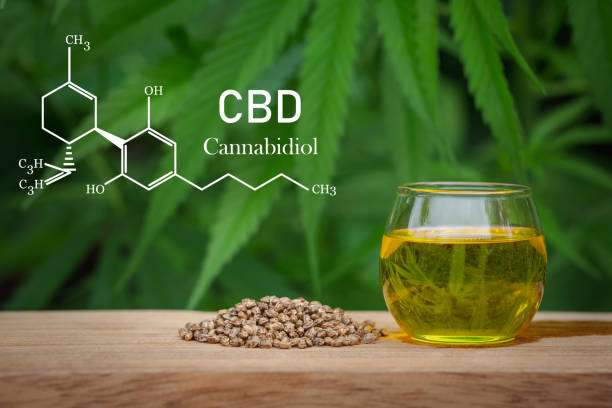CBD is a popular natural remedy used for many common ailments. However, there is a lack of scientific evidence to support its use as a treatment for any condition. CBD is not a cure-all, but it may offer some health benefits.
Unpacking the hype behind CBD
CBD is one of the hottest topics in the health and wellness world right now. It seems like everyone is talking about the potential benefits of CBD, from reducing anxiety and pain to improving sleep and skin health.
But what is CBD, and what does the science say about its potential health benefits?
CBD is short for cannabidiol, a compound found in the cannabis plant. Cannabis is a broad term that can refer to both marijuana and hemp plants. CBD is just one of many compounds found in cannabis, and it does not produce the psychoactive effects that marijuana does.
CBD is thought to interact with the body’s endocannabinoid system, which regulates various functions like sleep, appetite, pain, and immunity. Some people believe that CBD can help to improve these functions, but there is not yet enough scientific evidence to confirm this.
A large body of research is currently underway to better understand the potential health benefits of CBD. In the meantime, here’s a look at some of the science-backed benefits of CBD that are most promising.
1. CBD may help reduce anxiety and depression
Anxiety and depression are two of the most common mental health disorders in the world. They often go hand-in-hand, and can have a debilitating effect on your life.
CBD is thought to help reduce anxiety and depression by interacting with the body’s endocannabinoid system. This system is responsible for regulating mood, and some studies have found that CBD may help to improve mood and reduce anxiety.
One study of 24 people with social anxiety disorder found that taking 600 mg of CBD before a public speaking test significantly reduced anxiety and improved mood.
Another study of 72 adults found that taking CBD significantly reduced anxiety and improved sleep quality.
If you’re considering taking CBD for anxiety or depression, it’s important to talk to your doctor first. CBD is not a replacement for traditional medical treatment, and it’s not known if it’s safe or effective for long-term use.
2. CBD may help relieve pain
Chronic pain is a common problem, and
Childhood seizure disorders
CBD is not a cure-all – here’s what science says about its real health benefits
Cannabidiol (CBD) is one of the many chemicals found in the cannabis plant. Unlike its better-known cousin, THC, CBD is not psychoactive. That means it doesn’t get you “high.”
CBD has been touted as a treatment for everything from anxiety to seizures, but the science is still catching up to the hype. Here’s a look at what the current evidence says about CBD’s health benefits.
CBD for anxiety
Anxiety disorders are the most common mental illnesses in the United States, affecting 40 million adults. CBD has been shown to help reduce anxiety in some people.
A 2015 study looked at the effects of CBD in people with social anxiety disorder. The study found that those who took CBD before a public speaking test had significantly less anxiety than those who took a placebo.
A 2016 review of existing studies concluded that CBD can help reduce anxiety in people with certain anxiety disorders, but more research is needed.
CBD for pain
CBD may help reduce chronic pain by impacting the endocannabinoid system, which regulates pain perception, according to a 2015 study in the European Journal of Pain.
Another study found that CBD applied to the skin could help lower pain and inflammation due to arthritis.
CBD for seizures
CBD has been shown to be effective in reducing seizures in people with certain types of epilepsy. A 2017 review of existing studies found that CBD can help reduce seizures in children with Dravet syndrome, a rare form of epilepsy.
A 2018 study found that CBD may be effective in treating seizures in people with Lennox-Gastaut syndrome, another rare form of epilepsy.
CBD for cancer
CBD may help reduce symptoms of cancer and side effects of cancer treatment, according to a 2017 review of existing studies.
CBD for acne
CBD may help reduce inflammation and sebum production, two main causes of acne, according to a 2016 study.
CBD for other conditions
More than 200 scientific trials
CBD is not a cure-all, but it may have real health benefits, according to science.
More than 200 scientific trials have been conducted on CBD, and the evidence is mounting that it may be effective in treating a wide range of conditions, from chronic pain to anxiety.
While CBD is not yet FDA-approved for any specific condition, it is generally well-tolerated and considered safe.
CBD may be effective in treating a wide range of conditions, including:
– Chronic pain
– Anxiety
– Insomnia
– Depression
– Epilepsy
While more research is needed to confirm the potential health benefits of CBD, the evidence is mounting that it may be a safe and effective treatment for a wide range of conditions.
The risks of unregulated CBD
The CBD industry is growing at an alarming rate. With the passing of the 2018 Farm Bill, CBD products are now legal in all 50 states. However, the CBD industry is largely unregulated. This means that there is no guarantee of quality or safety when it comes to CBD products.
CBD is not a cure-all. In fact, there is very little scientific evidence to support the claims that CBD is an effective treatment for any condition. While CBD may have some potential health benefits, it is important to remember that it is not a miracle drug.
There are a few potential risks associated with CBD use. First, CBD can interact with other medications you are taking. If you are taking any prescription medications, it is important to talk to your doctor before using CBD. CBD can also cause side effects, such as fatigue, diarrhea, and changes in appetite.
It is also important to be aware that CBD products are not currently regulated by the FDA. This means that there is no guarantee of their safety or effectiveness. There have been reports of some CBD products being contaminated with heavy metals or other harmful chemicals.
When purchasing CBD products, it is important to do your research and buy from a reputable source. Look for products that are third-party tested and made from high-quality ingredients. Avoid products that make claims that are too good to be true.
CBD may have some potential health benefits, but it is important to remember that it is not a miracle drug. There are a few potential risks associated with its use. Be sure to do your research and purchase CBD products from a reputable source.





